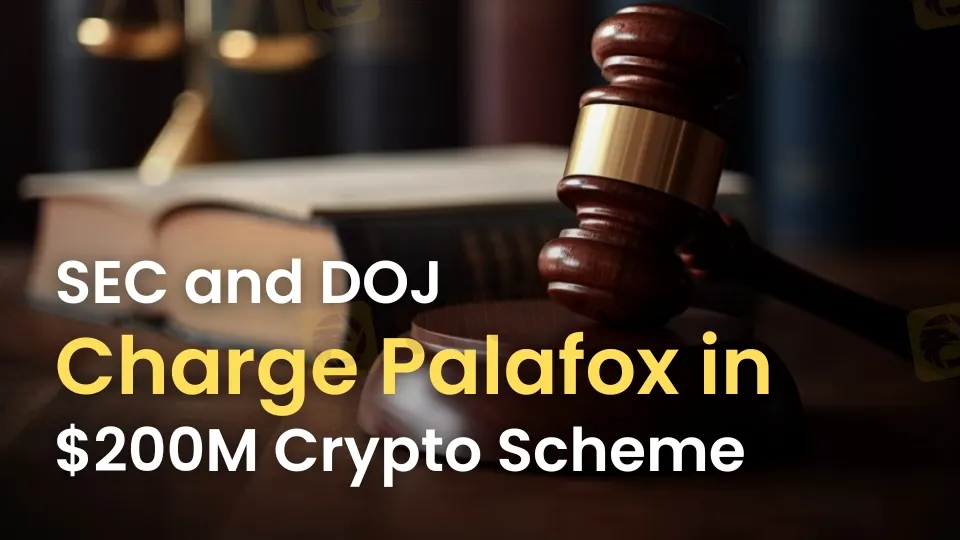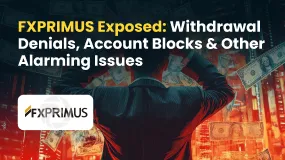简体中文
繁體中文
English
Pусский
日本語
ภาษาไทย
Tiếng Việt
Bahasa Indonesia
Español
हिन्दी
Filippiiniläinen
Français
Deutsch
Português
Türkçe
한국어
العربية
SEC and DOJ Charge Ramil Palafox in $200M Crypto Ponzi Scheme
Abstract:The SEC and DOJ charge Ramil Palafox in a $200 million crypto fraud, alleging Ponzi-like scam and misused investor funds for luxury goods and lavish events.

The U.S. Securities and Exchange Commission (SEC), together with federal authorities, has brought charges against Ramil Palafox, a citizen of both the U.S. and the Philippines, alleging he masterminded a sprawling cryptocurrency deception. This scheme reportedly stripped more than 90,000 people of $200 million. On April 22, the SEC laid out its case, asserting that Palafox diverted over $57 million from his venture, PGI Global, between early 2020 and late 2021.
The SEC contends that Palafox leaned on a multilevel marketing setup to perpetuate what they describe as a “Ponzi-like” fraud. He enticed people with assurances of earnings from Bitcoin and forex markets, boasting about his deep knowledge of cryptocurrencies and a cutting-edge AI trading system. Yet, the SEC insists this was mere trickery. Rather than investing, Palafox allegedly redirected the money to reward earlier participants and enrich himself, a ruse that held until PGI Global fell apart in 2021.
Palafox is said to have hosted grand gatherings in places like Dubai and Las Vegas to draw in fresh faces. He dangled incentives for those who brought others into the fold, amplifying the scam‘s reach. The SEC highlights how he splurged on extravagant items—think luxury vehicles, timepieces, and residences—all funded by the cash he took from investors. “Palafox lured people with tales of surefire gains from advanced crypto and forex trading, but instead of putting money to work, he treated himself and his loved ones to cars, watches, and properties,” remarked Scott Thompson, a senior official at the SEC’s Philadelphia branch.

The accusations from the SEC pin Palafox with breaking key securities laws related to fraud and registration. Theyre pushing for a court order to stop him from dealing in securities or crypto moving forward, alongside demands for him to repay what he gained and face financial penalties.
Federal Criminal Charges and Asset Seizure
Meanwhile, the U.S. Attorney‘s Office in Virginia’s Eastern District has stepped in with its own legal salvo. A confidential indictment from March 13 levels charges of wire fraud, money laundering, and shady financial dealings against Palafox. The prosecution alleges he fed investors a line about earning steady daily profits—anywhere from 0.5% to 3%—through Bitcoin trades, all while hiding the truth about PGIs finances, credentials, and activities.
Court documents paint a picture of Palafox claiming his team could profit no matter which way Bitcoins value swung. In reality, prosecutors say, the bulk of the money never touched cryptocurrency markets, leaving many who trusted him out of pocket.
If found guilty, Palafox stands to lose a hefty haul: over $1 million in cash, a fleet of 17 cars—including two Teslas, a Ferrari 458 Special, twin Lamborghinis, and a pair of Porsches—plus a trove of designer gear like bags, shoes, and jewelry.
The Collapse of PGI Global and Related Companies
The web of deceit wasn‘t limited to PGI Global alone. Another outfit, Praetorian Group International Trading Inc., tied to Palafox, got caught up in the mess. Back in 2021, the Justice Department took over its website, a move that led to its UK arm being dismantled by a High Court ruling, all part of the broader probe into Palafox’s dealings.
This marks a notable crypto crackdown under Paul Atkins, the SECs new chair, who took office on April 22. Earlier this year, the agency had gone after Nova Labs for peddling unregistered securities linked to Helium mining gear, a matter settled in April with a $200,000 fine.
As these cases unfold, those misled by Palafoxs hollow crypto and forex pledges may never see their money again, a harsh lesson in the perils of diving into unchecked crypto ventures.

Disclaimer:
The views in this article only represent the author's personal views, and do not constitute investment advice on this platform. This platform does not guarantee the accuracy, completeness and timeliness of the information in the article, and will not be liable for any loss caused by the use of or reliance on the information in the article.
Read more

Investing in Coinexx? Think Again Before Your Account Balance Hits ZERO
Coinexx has emerged as a nightmare for traders who once saw potential and profit in its platform. The problems lie in its lack of transparency, which has left many investors with a ZERO balance. Scamming investors by employing fraudulent tactics and introducing bogus trading rules is increasingly becoming its status symbol. The endless negative reviews of this scam broker are trending on various platforms. To expose the troubling investor experiences, we’ve compiled sharp complaints from verified users of Coinexx. Read on!

UnityFXLive: How This Broker Scammed Over $350,000 ? Know the Red Flags
On August 4, 2025 Indian police arrested two men for running a fake forex trading scam under the name UnityFXLive.com. The suspects were caught operating from a rented office in Goregaon, Mumbai. During questioning, they revealed the name of a third person who is believed to be the mastermind behind the scam. He is currently on the run. The scammers promised people high returns on forex investments, but instead of doing real trading, they stole the money using fake online platforms.

FXPRIMUS Exposed: Withdrawal Denials, Account Blocks & Other Alarming Issues
Have your fund withdrawal applications been constantly denied by FXPRIMUS? Does the forex broker inappropriately block your trading account? Are your deposits disappearing without reaching your trading account? There’s something seriously wrong with this forex broker, whose track record keeps getting worse by the day. Many traders have expressed their anguish on several broker review platforms. While reading those reviews, we could not resist exposing this broker. Check out how traders have criticized FXPRIMUS for its illicit acts.

FXPRIMUS Exposed: Withdrawal Denials, Account Blocks & Other Alarming Issues
Have your fund withdrawal applications been constantly denied by FXPRIMUS? Does the forex broker inappropriately block your trading account? Are your deposits disappearing without reaching your trading account? There’s something seriously wrong with this forex broker, whose track record keeps getting worse by the day. Many traders have expressed their anguish on several broker review platforms. While reading those reviews, we could not resist exposing this broker. Check out how traders have criticized FXPRIMUS for its illicit acts.
WikiFX Broker
Latest News
Forex Swaps Explained in 5 Minutes – Everything You Need to Know
Telegram vs WhatsApp vs Discord: Which Platform Is Best for Forex Signals?
Investment Scam Alert: FCA Identifies 15 Scam Brokers
BaFin Issues Consumer Alerts Against Unauthorised Platforms
Retired Man Loses Life Savings to ‘Sister Duo’ in Forex Scam
Exploring Laxmii Forex: Kharadi's Financial Hub
TradexMarkets: 5 Troubling Signs You Shouldn’t Ignore
A Guide to Buy Stop vs Buy Limit in Forex Trading
SEC Implements New Rules for Crypto-Asset Service Providers
Binance Users Convert Crypto and Withdraw Instantly to Mastercard
Currency Calculator


